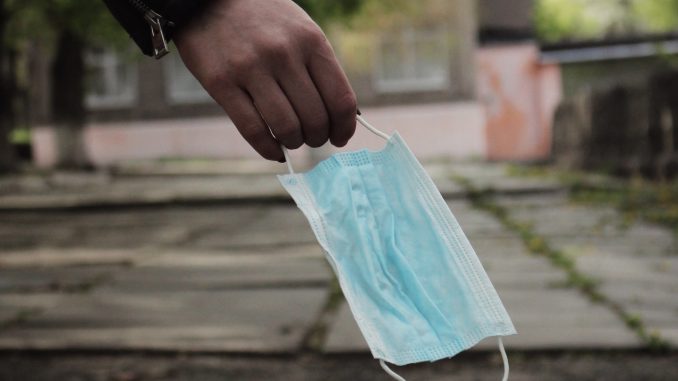
Despite growing economic woes and rare signs of public dissent, China continues to stubbornly cling to a zero-Covid policy at all costs while other countries that had relatively strict curbs at the peak of the pandemic are lifting restrictions and retiring virus control tools. In recent days, the Chinese government has imposed roughly 200 full or partial lockdowns across the country, affecting over 200 million citizens in dozens of cities including Wuhan, Guangzhou and Zhengzhou, the latter of which has notably entailed a chaotic quarantine of the world’s largest iPhone factory and its surrounding district.
Meanwhile, countries such as New Zealand and Japan have taken strides towards a new normal, with the former dropping mandatory vaccines and mask wearing, among other changes, and the latter announcing that it will no longer be using its tracing app. The semi-autonomous Hong Kong and self-governing Taiwan are also opening up, with the former axing quarantine rules for international travelers and the latter reestablishing visa free travel for US and EU visitors in September.
Of course, it would be foolish to assume that Covid has been vanquished once and for all, with future waves of the disease an almost inevitability. However, now is an opportune moment to take stock of the lessons learned over the past few years and identify which measures make sense to keep in place, as well as pinpointing the areas in which innovators and policymakers should devote more energy and attention going forwards.
Little appetite for invasive and inconvenient measures
When even the strictest lockdown regimes are being reversed, and even the most docile populations beginning to rebel, it’s clear that the public response to Covid-19 is reaching a crossroads. Even relatively inobtrusive measures such as mask-wearing have proven surprisingly controversial, especially in comparison to previous health crises, thanks largely to the unprecedented platform given to dissenting voices by social media channels today. A global tourism sector still recovering from the crippling effects of stringent testing requirements is unlikely to welcome their return, either.
However, we cannot expect normal service to be resumed without some tweaks to our daily habits and lifestyles. Future waves of the disease are certain to persist and this winter could see fresh challenges arise in the northern hemisphere, particularly if its southern counterpart is anything to go by. Australia has experienced its worst influenza season in five years, with three times more cases than the average number. Given that Europe and North America normally follow suit in terms of flu outbreaks, similar results are expected there. With another peak of Covid infections projected to arrive in mid-December, it could be a perfect storm of viral diseases in the first winter during which lockdown restrictions will not be in place in many parts of the world.
Tech solutions offer a path forward
Clearly, we cannot afford to simply stand still. Thankfully, a raft of technological innovations have surfaced which could lower the risk of infection without too much inconvenience. For example, the kind of AI-powered thermal scanning kits pioneered by Remark Holdings were already popular throughout Asia prior to the pandemic. Now, their ability to scan the temperature of hundreds of people per minute, track attendance figures and recognize if individuals are wearing face coverings is proving helpful at controlling the spread of the disease without the need for invasion of privacy or personal space.
Elsewhere, the development of a self-sterilizing plastic film could represent a major breakthrough in the healthcare industry. Containing particles of titanium dioxide which react with light and kill off the genetic material of bugs like the coronavirus, the plastic is inexpensive to make and versatile enough to be fashioned into aprons, face masks and other PPE. Meanwhile, a new breath sampling machine has shown 100% efficacy at detecting Covid-19 simply through exhalation of the test subject. Unaffected by the contamination, sample loss and variability issues which have plagued previous techniques, the device has great potential for monitoring or diagnosing COPD, asthma and other respiratory ailments, too.
Society must evolve
Just as important as these technical and technological advances, however, is the behavioral response from society at large. One of the unexpected boons of the pandemic has been the widespread uptake of remote work, which has not only curbed our carbon footprint and increased efficiency, but also slashes the risk of office infection. One study laid bare how quickly germs can spread in the workplace, with half of all surfaces contaminated by a single host patient by lunchtime alone. That led to a 40% to 90% risk of infection for their colleagues. Working from home precludes that possibility entirely.
Meanwhile, the pandemic has also catalyzed a transition towards a cashless society through a swift uptake in digital payment methods. 76% of adults worldwide now have a banking or mobile money account (up from 68% in 2017), while two-thirds of the global populace use that account to facilitate digital payments. Given that studies have shown 94% of banknotes have bacteria on them (with one investigation revealing up to 10 microbes per square centimeter), and that physical currency changes hands over once a week at the very least, cutting out cash in favor of contactless payments is a great means of avoiding cross-contamination and infection.
It will take societal changes such as these, alongside the forward-thinking tech solutions mentioned above, to reduce the risk of infection whilst still maintaining a strong quality of life and accompanying economic stability in a post-Covid world. Although it may not be feasible to eradicate Covid-19 completely, nor control how the disease mutates and adapts going forwards, it’s entirely possible to prepare ourselves as best as possible.


Leave a Reply